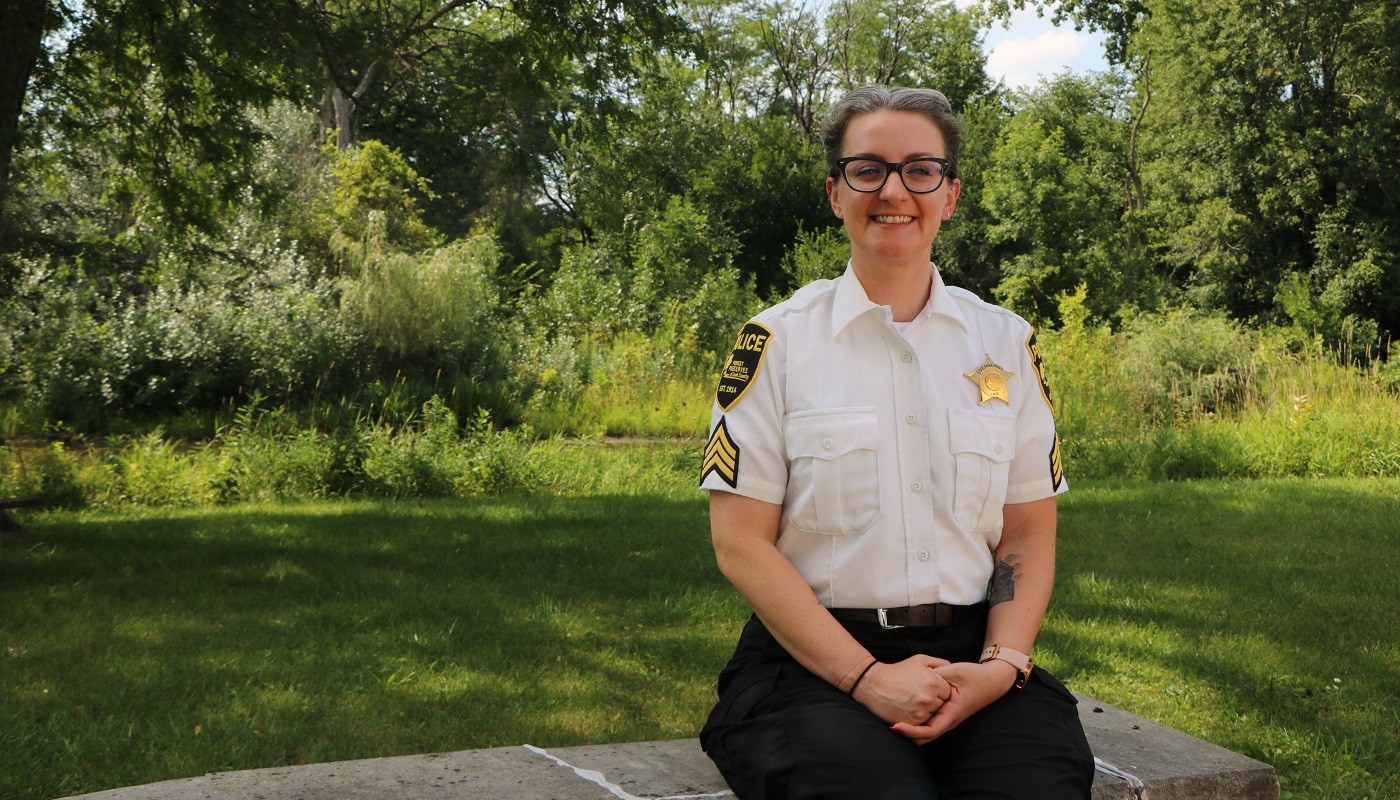Sergeant Amanda Kennedy always knew she wanted to be a first responder. Growing up, she witnessed both her parents dedicated to serving others, her mother as a nurse and her father as a police officer. When deciding her future path, she thought she’d follow in her mother’s footsteps, but now 15 years with the Forest Preserves Police Department, she couldn’t be happier with her career choice.
“It’s a good feeling coming to work every day. So many people frequent the Forest Preserves, and they’re usually pretty happy to see me. I enjoy interacting with them, conversing about the Forest Preserves and what [the visitor] enjoys about them,” Sgt. Kennedy shares.
She also recognizes, though, that police officers respond to situations every day that are influenced by mental health issues—and situations that can impact the mental wellbeing of the officers, as well.
“You can go to a scene and clearly see that it’s a [traumatic situation]. And there are the daily smaller scenes that add up over time,” she says. “You may not even realize how you’re being impacted. Day after day, you may be fine with what you do and what you see. But there may be that one [case] that you see, and it hits you a different way.”
So when senior officials in the department sought applicants for the newly created Mental Health Awareness Liaison, Sgt. Kennedy jumped at it. Part of the job will be training officers on ways to respond properly to people in crisis. “A lot of that is understanding where a person may be coming from when you’re dealing with them,” she says.
The role also serves as a confidential point of contact for department personnel seeking support or resources. Additionally, the liaison will facilitate training and provide information to the police department on maintaining healthy mental and emotional wellbeing.
Understanding she’s starting from the ground up, Sgt Kennedy is considering how to best support Forest Preserves police officers, with initial plans to introduce officer peer support, restarting critical incident debriefings (meetings where all personnel involved in a traumatic case can come together to talk with a representative from the Employee Assistance Program), as well as hosting trainings provided by the National Alliance on Mental Illness.
“In policing, we talk a lot about tactics and officer safety…well this is part of officer safety. It’s something that shouldn’t be considered a whole ‘nother subject,” she says. “It’s part of our jobs, it’s part of lives. It needs to be normalized.”

